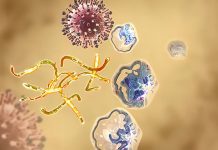
Research from St. Michael’s Hospital of Unity Health Toronto suggests that children eating a vegetarian diet have similar growth and nutrition to children eating a diet containing meat.
The Canadian study involved 9000 children, identifying that those following a vegetarian diet displayed comparable growth and nutrition to those eating meat. However, the research also highlighted that these children were more likely to be underweight, meaning that they may need special care when planning their diet.
The findings are essential as the number of children following plant-based diets in Canada has increased significantly in recent years. In 2019, Canada’s Food Guide urged citizens to consume more plant-based protein sources instead of traditional meat options, opting for vegetarian-friendly proteins such as beans and tofu.
Dr Jonathon Maguire, the lead author of the study and a paediatrician at St. Michael’s Hospital of Unity Health Toronto, commented: “Over the last 20 years, we have seen the growing popularity of plant-based diets and a changing food environment with more access to plant-based alternatives; however, we have not seen research into the nutritional outcomes of children following vegetarian diets in Canada.
“This study demonstrates that Canadian children following vegetarian diets had similar growth and biochemical measures of nutrition compared to children consuming non-vegetarian diets. A vegetarian diet was associated with higher odds of underweight weight status, underscoring the need for careful dietary planning for children with underweight when considering vegetarian diets.”
The investigation, published in Pediatrics, was funded by the Canadian Institutes of Health Research (CIHR), St. Michael’s Hospital Foundation, and SickKids Foundation.
Impacts of a vegetarian diet on children
For their study, the team utilised data from 8,907 children involved in the TARGet Kids! cohort study. All participants were aged between six months and eight years, and data was collected between 2008 and 2019. The team categorised the participants by their vegetarian status, which was defined as a dietary pattern that excludes meat or non-vegetarian status.
The results signified that children consuming a vegetarian diet had similar BMI, height, iron, vitamin D, and cholesterol levels to those whose diets included meat. Moreover, the findings showed that the vegetarian children had almost two-fold higher odds of being underweight, which is defined as below the third percentile for BMI. However, there was no evidence that the plant-based diet causes children to be overweight or obese.
Nutritional support
Being underweight is a sign of undernutrition, highlighting that the quality of the child’s diet is not meeting their nutritional needs to support normal growth. Because of this, the researchers advise that children on a vegetarian diet have access to healthcare experts who can provide growth monitoring, education, and information to aid their growth and nutrition.
Current international guidelines about vegetarian diet during infancy and childhood have varying recommendations, which is also reflected in prior studies into the relationship between the diet, childhood growth, and nutritional status that also had conflicting findings.
Dr Maguire, a scientist at MAP Centre for Urban Health Solutions at St. Michael’s Hospital, said: “Plant-based dietary patterns are recognised as a healthy eating pattern due to increased intake of fruits, vegetables, fibre, whole grains, and reduced saturated fat; however, few studies have evaluated the impact of vegetarian diets on childhood growth and nutritional status. Vegetarian diets appear to be appropriate for most children.”
Study limitations
The team explained that a limitation of their study is that they did not assess the quality of the vegetarian diets, which can come in many forms and therefore impact growth and nutritional outcomes. Due to this, the researchers said that further studies are required to analyse vegetarian diet quality in childhood and growth, and nutritional outcomes for children following a vegan diet, which omits meat and animal-derived produces, including dairy, egg, and honey.
























